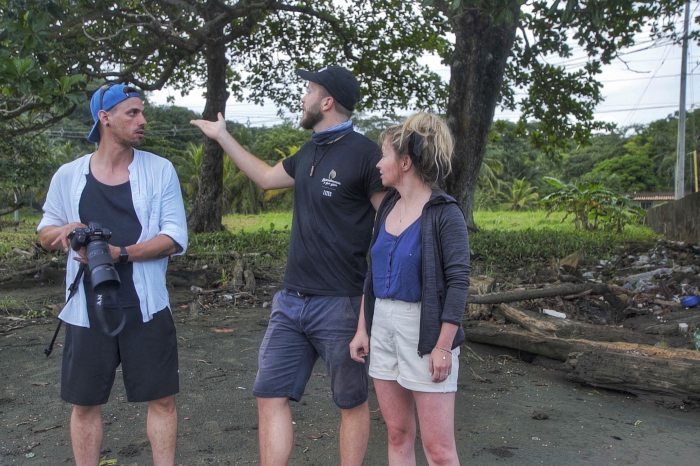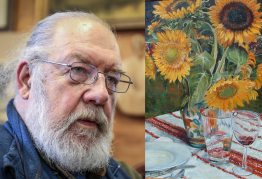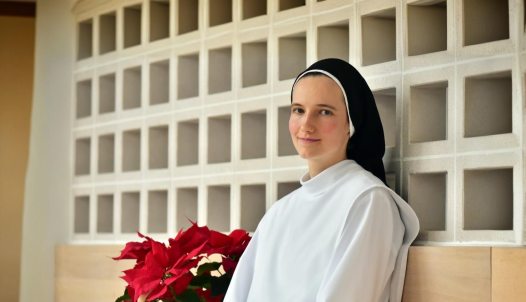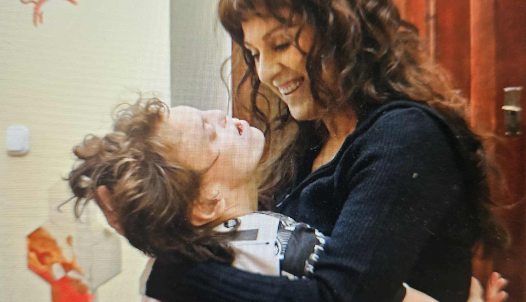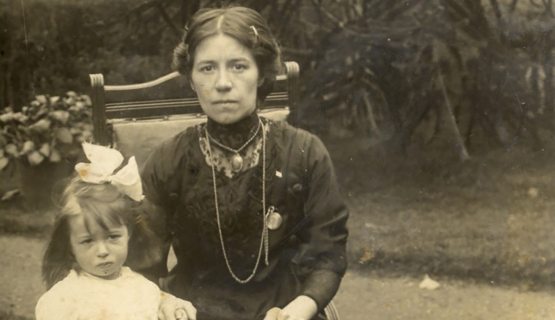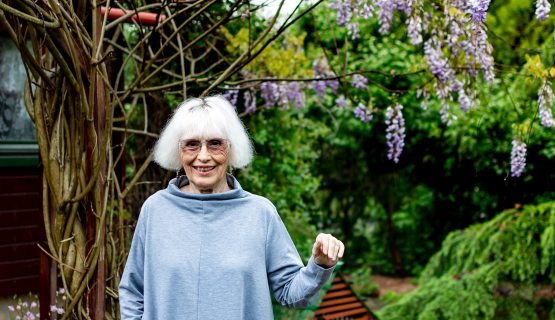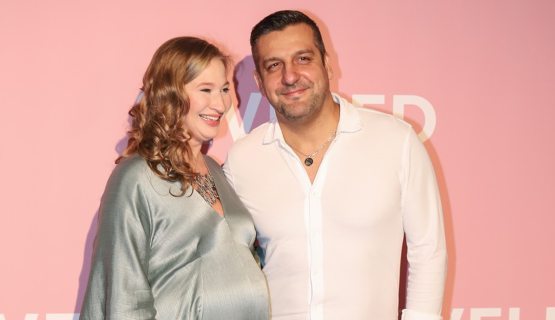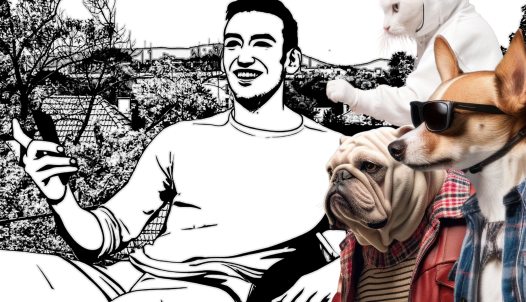”The people we meet are living historical footprints” – the cool traditionalists say
Dániel Kurucz, the host-producer of the television series Hungaricums Around the World, has visited Hungarians living in 35 countries on five continents, searching for Hungarian relics. He filmed the fifth season of the show, which has already started on TV2 - and the upcoming sixth –together with his wife, Szonya Kurucz-Nagy. This time the crew visited four South American countries and a considerable part of the USA. I asked Szonya and Dani about their experiences.
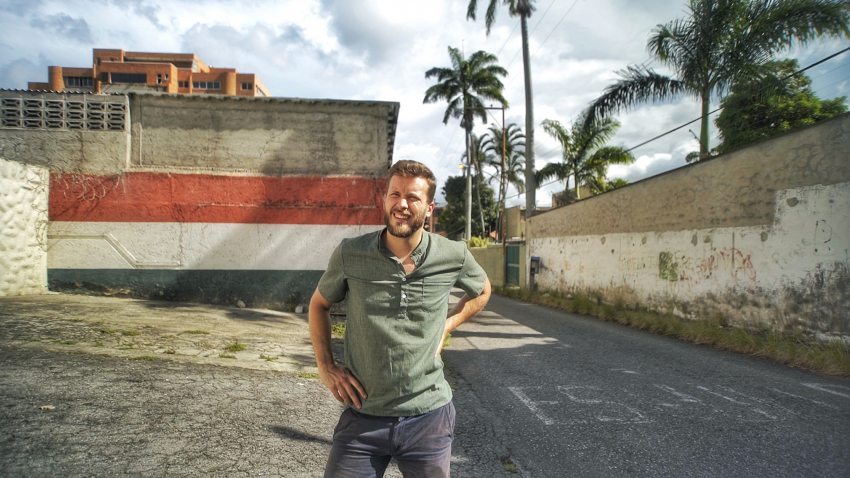
Dani, has Hungaricums Around The World turned out to be what you envisioned when you started the series?
Dani: Everyone has childhood dreams, we both wanted to be great travellers. We even found the World Travellers' Atlas in Sonya's childhood room. I planned the itineraries for the first three seasons, and even the half of the fifth, more than ten years ago, and I have more in mind. Of course, you have to be able to improvise when you don't get into a country, for example. It's one thing to imagine it from home, and it's another thing when Tamás Frei, On The Spot, or Michael Palin check in from somewhere.
In 1988, Palin planned to follow Willy Fogg's 80-day trip around the world, but even then he and his crew were not allowed to enter Saudi Arabia. So were we in Nicaragua, where the president's wife is vice president, or in Pakistan, where we were mistaken for Indian spies.
When the camera is rolling and we're smiling, that's just the icing on the cake, but you have to get there. We had the whole crew running back from the reeds to film, we had such bad food poisoning, we obviously don't film that kind of thing. There'd be no one to record it. (laughs)
Hungaricums are important to many of us, but the fact that you've based a whole series of programs on them implies an even closer connection...
Dani: In 2013, I came very close to the topic in the Kőrösi Csoma Sándor Programme, and I also wrote my thesis on the autonomy of Szeklerland at the Pázmány Péter University’s Faculty of Law. I realized that there are a lot of Hungarian relations in the world that we don't know about. At home, it is impossible to go out without seeing a foreign number plate, while travelling around the world we do not know Hungarian treasures and street signs of which we could be proud. There were those who fled from the Second World War to Venezuela with a suitcase and then set up a Hungarian House there, which is still maintained to this day. While there is a ticket system and war going on. Our crew wants to show these values to people here at home.
Sonya, you followed the previous season from the outside, but you were already working as an audio engineer on the spot for this one. What has this adventure given you?
Sonya: I was born in Brasov, my family came over from Transylvania in 1992. The feeling of being a Hungarian minority living across the border has been part of my life since childhood. Since then, I have been preserving Hungarian values.
It's an incredible feeling and a great learning process to meet Hungarians all over the world who join forces even 9,000 kilometres away from their homeland to pass on their language, culture and traditions to their children and grandchildren.
Such remarkable, exemplary preservation of tradition is something you don't often come across even in Hungary.
Dani: It is not the same thing, of course, that someone had an opportunity to leave or had to leave their country. Many people who did it by necessity remained in love with the country. We felt especially with Hungarians in the US that even a fourth-generation Hungarian might have received a romantic image of Hungary from his grandparents or great-grandparents, which was perhaps never entirely true, but they grew up with it. And eventually, they would even move here, even though they might no longer have any relatives back home. Those who emigrated in or before '56 are preserving a slice of their homeland, a slice of the perception of that time, which is perhaps worlds apart from that of today. And they might even be called ‘emigrants’ back home.
People should be made aware that citizenship, nationality and language do not stop at borders. You can be Venezuelan because your mother married a Venezuelan, but you speak Hungarian, you know a lot about the country and you tell your children to come to Budapest and Lake Balaton. They are our best diplomats.
I think you'll agree that it's important to make the younger generation accept this approach, so that they don't see it as an outdated attitude.
Sonya: That's why the series tries to convey our values in a slightly lighter style, to appeal to everyone from minors to the elderly. Just as patriotism is instilled in children abroad from a very young age.
Dani: (taking Sonya's hand in agreement) It's great to know our history. It is even greater that there are people abroad who teach their children Hungarian. And the fact that outside Europe, it reaches across generations is amazing! But I'll tell you something else. The Taita Foundation in Hungary supports Kenyan children, but also cooperates with Hungarian organisations abroad. Father Csaba Böjte helps Hungarian children from the Carpathian Basin, but along with Romanians and Gypsies. So the one who helps, helps everyone, but still few people help.
If the Venezuelan Hungarians have no water, who can help them if not us? This is also a kind of solidarity, and national solidarity can never be an outdated concept.
How much have you personally been changed by all the experiences you've had while filming?
Szonya: I have been enriched in every way by being able to see first-hand the love, friendship and the touching stories of the Hungarians living abroad. If it had been possible, we would have stayed in one place for weeks talking to them, but of course we had to move on. But even now I get goosebumps when I think about one father, for example, travelling 6 hours to take his child to learn Hungarian for 60 minutes and then 6 hours back.
Dani: As a child from Buda, I became more humble as I got to know the different circumstances in which people live. When you ask where the toilet is, and they point to a hole in the wall. Obviously they would offer you a better toilet, if they could but they can't... So you can smile about that, but you can also be grateful that they offer you their toilet. Perhaps the whole country should be sent on a field trip like this, to show people how much happier and more cohesive others are under those circumstances. And those who don't have all the material goods tend to be more willing to remain Hungarian. In affluence it is easier to lose values and become part of the masses.
What do you think makes national identity so important to these people - as you said, perhaps even more important than to those in the motherland?
Dani: Many people ask why, once you move there, you should keep Hungarian customs. From Vietnam to America we got the same simple answer to that: because it makes them a better person. In a world of 7 billion people, your uniqueness will not come from Marvel comics, but from language skills and knowledge of cultures. They make you more tolerant, more interesting. Obviously, we are not able to go into them as deeply as if we read War and Peace, but we can go into them at a, say, “shortened version” level. And the viewer already gets more than without our programme: they will have impressions from many parts of the world. From places where Hungarians rarely film, and about things that are difficult to convey even in a film.
Szonya: The people we meet are living historical footprints.
And we heard from them what it was like to leave their homeland and start their lives anew in a completely different world. We could see the homesickness in their eyes as they began to shed tears when talking about Hungary. I have probably never seen a building as beautiful as the Hungarian House in Venezuela. Right after the first city view of Caracas, a huge red, white and green flag greeted me at its gate...
Dani: In Mexico, in Merida, they came to greet us putting aside their jobs and family programmes. For a family of five to fly home and back is not financially feasible. All they can do is read Hungarian stories, watch Hungarian TV and cook Hungarian food. Once they have had to leave or found happiness there. After communism, you can live wherever you want. If you stay at home that's great, if you go abroad and bring home some new skills that's even better. If you stay abroad, that's fine, just remember where you came from. That's what they do. Without political or any other kind of bias, they teach their kids a little bit of Hungary, even the weirdest ones.
Szonya: it is a very important point that regardless of their political affiliation, they unanimously consider it an important value that they are Hungarians.
Dani: And they find what suits their preferences.
Whether it’s Péter Esterházy, Sándor Márai or Albert Wass, it makes no difference. Nostalgia is also common, because everyone realises, wherever they move, that Hungary is beautiful. Americans in particular also point out that it is peaceful. You can walk down the street without getting mugged, and you can walk to the groceryshops, not just drive.
They see it as an island of peace, while we, here at home see it as a frustrated, aggressive place based on hate filled Facebook comments. In Mexico, instead, the line is hit with a sexual or alcoholic joke, and in America, there are superficial conversations about the weather because they avoid politics, skin colour and all that.
I don't want to send out a spoiler from season six, but how far did you get in the US?
Dani: From New York to Chicago and Texas to New Orleans. There, to this day, stands the statue of Lajos Kossuth across from the FBI headquarters in Louisiana, where he once spoke before a huge crowd. He was the second non-American to receive a statue in the Capitol Hill. What Americans know about Hungarians are: Lajos Kossuth, Ágoston Haraszthy and Viktor Orbán. Our two cameramen were also filming on Kossuth Street in St. Louis when a black guy honked at them and asked, "Are you filming about the ghetto?" They told him who the street was named after. He pointed a gun and said that it was the most dangerous street in the state, but thank you very much, now he can finally tell everyone who Kossuth Lajos is! (laughs)
Your mission is then not only useful to the Hungarians, but also to the world...
Dani: We should unite Hungarians around the world like the HuGo app does in the US. It collects all the Hungaricums: every Hungarian story, street sign, legacy, memory, Hungarian butcher, church, bakery. Because there are people whose grandmother was Hungarian, but they as butchers make Hungarian sausages. Or the biggest pastry shop in Venezuela, Danubio, is also Hungarian.
Perhaps there will be a renaissance of it, and Hungarians will also feel that Hungarian culture is cool in this form too. Because it can be sexy too.
Szonya: In the US, for example, little kids run around in T-shirts that say "I'm Hungarian, this is my superpower"... If you did that in Budapest, you would look suspicious, people would think you’re too Hungarian. But we were welcomed everywhere, and people were very happy that Hungary would finally get a little bit of them, or of the work they do for the survival of the Hungarian nation.
Originally you are lawyers. How much do you think your current activities, travelling and filming, will be your long-term path?
Dani: We want to start a family, but we don't think we will not be able to travel with a baby. It would be good imprinting for them, so we want to keep filming as long as we can. Travelling adds to us, both individually and as a couple. The show's message to us was the same as to the other viewers that we can get engrossed. It's like we're stopping time. Because there are always idle times on the road, when you can ponder things you don't have time to think about at home, when you're always in a hurry. I would also suggest that anyone who is newly married should set off - you don't have to go all the way to Venezuela, a tour on the River Tisza is enough. We've been on a pre-marital counselling course, but when you can't decide who's more sick to their stomach, who should go to the toilet first or who snores more in five square metres with five people, it's a sobering experience. And it brings you together on a level that no pre-marital counselling course can. The stories also bond you for life, "remember when...?". You can tip the boat over - or not - on a trip on the River Tisza, and you can tell your granddaughter that mum was so cool she even did that! (looks at Sonia, who smiles)
Hungaricums around the world can be followed on the following platforms:
